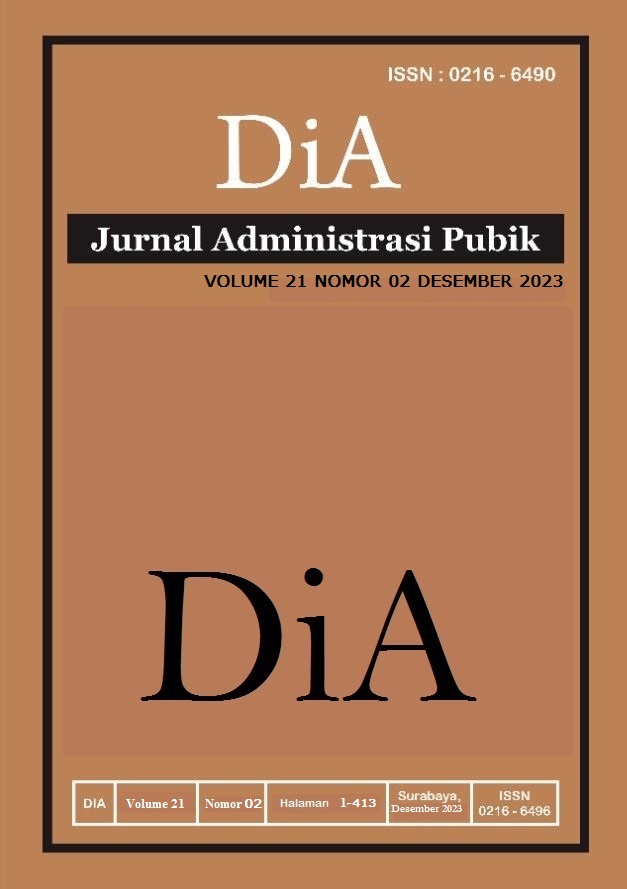IMPLEMENTATION OF HOUSE UNFITABLE FOR LIVING (RUTILAHU) IMPROVEMENT PROGRAM IN SUKABUMI REGENCY (THE CASE STUDY OF SUKARAJA DISTRICT)
DOI:
https://doi.org/10.30996/dia.v21i02.8107Keywords:
Policy, Implementation, RUTILAHUAbstract
RUTILAHU is a program aimed at low-income people, who have homes that do not meet the standards to live in. With the intention that they can improve their living standards reasonably and have housing that meets the standards. This activity aims to improve social welfare for the poor and low-income communities. This study was conducted to determine the extent of RUTILAHU program implementation in Sukabumi, especially in Sukaraja District. This study uses descriptive research methods with a qualitative approach. Data validation in this study using triangulation methods and data analysis using interactive models. In analyzing the findings, this study uses the implementation theory of Van Meter and Van Horn which explains the success indicators of an implementation looking at Policy Size and objectives, resources, characteristics of implementing agents, communication between organizations, Economic, Social, and Political Conditions & Tendency of the Executor/Implementor. The results showed that each variable of the policy implementation has been appropriate where the RUITLAHU program is appropriate target for low-income communities. In its implementation, there is cooperation between the government, private sector and other stakeholders, physical evidence of the proposal for the non-habitable House program is carried out in accordance with the Peraturan Bupati Nomor 33 Tahun 2021 and the existence of socialization between the government and the private sector and the community in this uninhabitable house program.
Downloads
References
Agustino, L. (2016). Dasar-dasar Kebijakan Publik (Edisi Revisi). Alfabeta.
Ali, F., Syamsul, A., & Sastro, M. (2012). Study Analisi Kebijakan. Rafika Aditama.
Creswell, J. (2019). RESEARCH DESIGN Qualitative, Quantitative and Mixed Methods Approach Fourth Edition. Student Library.
Moleong, L. J. (2017). Metodologi Penelitian Kualitatif. PT. Remaja Rosdakarya.
Muazansyah, I., & Sudirman, I. (2020). IMPLEMENTATION OF COMMUNITY DEVELOPMENT AND EMPOWERMENT AT PT PESONA KHATULISTIWA NUSANTARA. DIA: Jurnal Administrasi Publik, 18(2), 54–70. https://doi.org/10.30996/dia.v18i2.4147
Nugroho, R. (2012). Public Policy. Kompas Gramedia.
Sugiyono. (2018). Metode Penelitian Kuantitatif, Kualitatif, dan R&D. Alfabeta.
Suharto, E. (2014). Analisis Kebijakan Publik. CV. Alfabeta.
Downloads
Published
How to Cite
Issue
Section
License
The DiA journal allows authors to retain the copyright of their papers without limitation. Authors may grant publishers non-exclusive publishing rights to publish articles. Granting first publishing rights to publishers also qualifies as unlimited copyright (because there are no restrictions imposed by publishers on author copyright).







